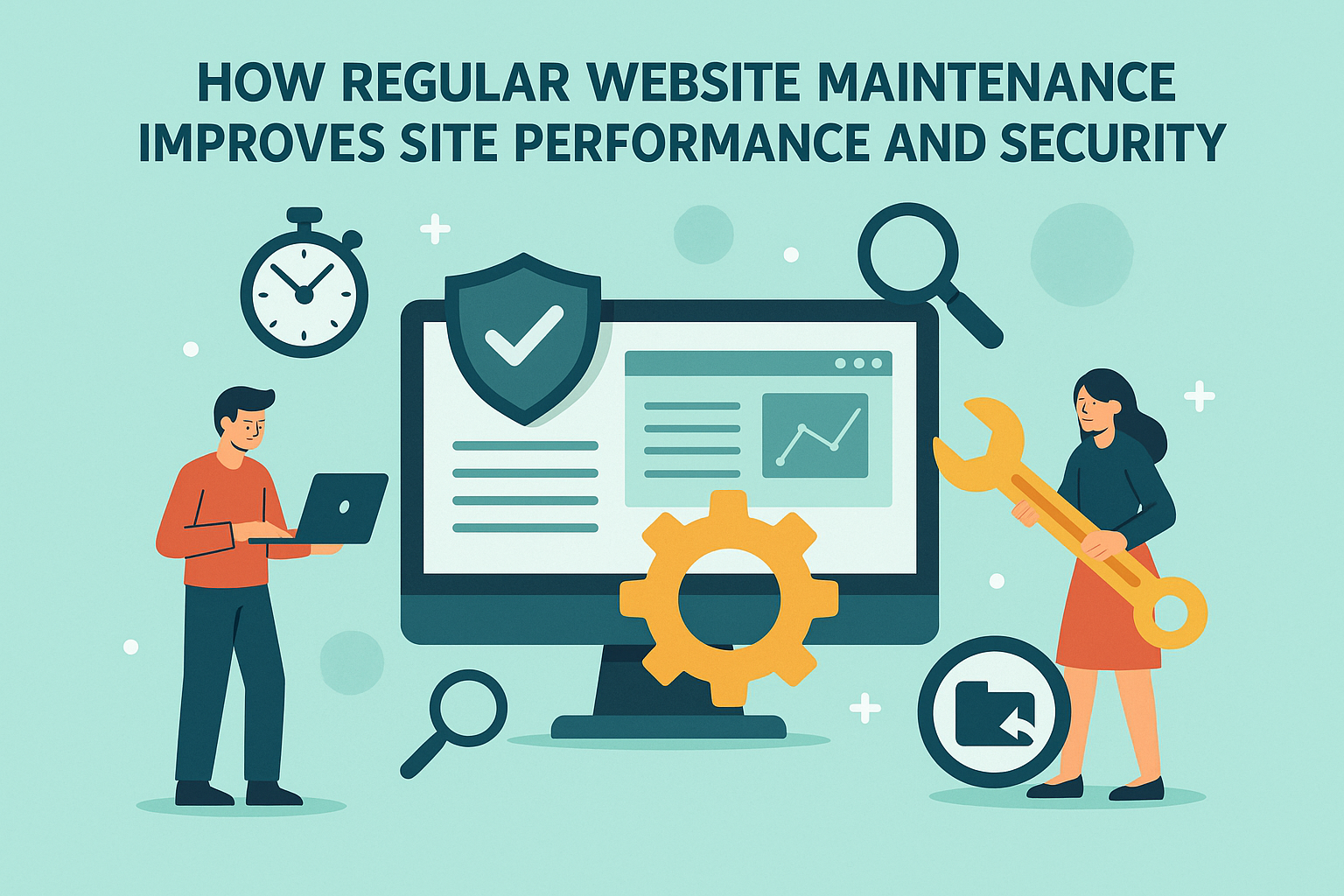
Essential Website Maintenance Practices for Peak Performance
Essential Server Maintenance Tips to Keep Your Website Running Smoothly
How Regular Website Maintenance Improves Site Performance and Security
In the fast-paced digital world, maintaining your website regularly is just as crucial as developing it. A well-maintained website ensures smooth performance, better user experience, and strong security. Businesses that ignore regular updates and performance checks risk losing customers and exposing their data to potential threats.
1. Enhances Website Speed and User Experience
Website speed is one of the key factors that influence how users interact with your website. Over time, unused plugins, outdated code, and heavy images can slow down your site. Regular maintenance allows you to optimize these elements, clean up unnecessary data, and ensure that your website loads quickly on all devices. Fast-loading websites not only keep users engaged but also rank higher on search engines.
2. Strengthens Website Security
Cyberattacks are becoming more sophisticated every day. Outdated software, themes, or plugins create vulnerabilities that hackers can exploit. By performing regular website maintenance, you can keep your CMS, plugins, and themes up to date. It’s also important to monitor your security logs and perform vulnerability scans to detect and fix potential threats before they cause harm.
3. Boosts SEO and Search Engine Rankings
Search engines favor websites that are regularly updated and error-free. Broken links, outdated content, and slow site speed can hurt your SEO performance. Regular maintenance helps identify and fix these issues, ensuring your site stays search engine friendly. Updating content, checking for 404 errors, and optimizing metadata are small but powerful steps that make a big difference in your ranking.
4. Improves Website Reliability and Uptime
Imagine your website going down in the middle of a sales campaign or during peak hours—it can damage your brand reputation and cost you valuable customers. Regular maintenance ensures your website remains online and accessible. By monitoring uptime and performing preventive server checks, you can identify issues early and keep your site running smoothly 24/7.
5. Ensures Compatibility with Latest Technologies
As web technologies evolve, your website must stay compatible with the latest browsers, devices, and tools. Maintenance ensures that your site remains responsive, secure, and functional across different platforms. It also gives you a chance to integrate new features that enhance the user experience and improve engagement.
6. Protects Data and Enhances Backup Management
Regular website backups are essential to protect your data from accidental loss, malware attacks, or server crashes. During maintenance, automated backups can be verified and tested to ensure quick recovery in case of emergencies. This proactive approach minimizes downtime and ensures business continuity.
Conclusion
Website maintenance is not a one-time task but a continuous process that keeps your online presence secure, reliable, and efficient. By scheduling regular maintenance checks, updating plugins, monitoring uptime, and optimizing performance, you can prevent problems before they arise and keep your website running at its best. In today’s competitive digital landscape, a well-maintained website is your strongest business asset.







